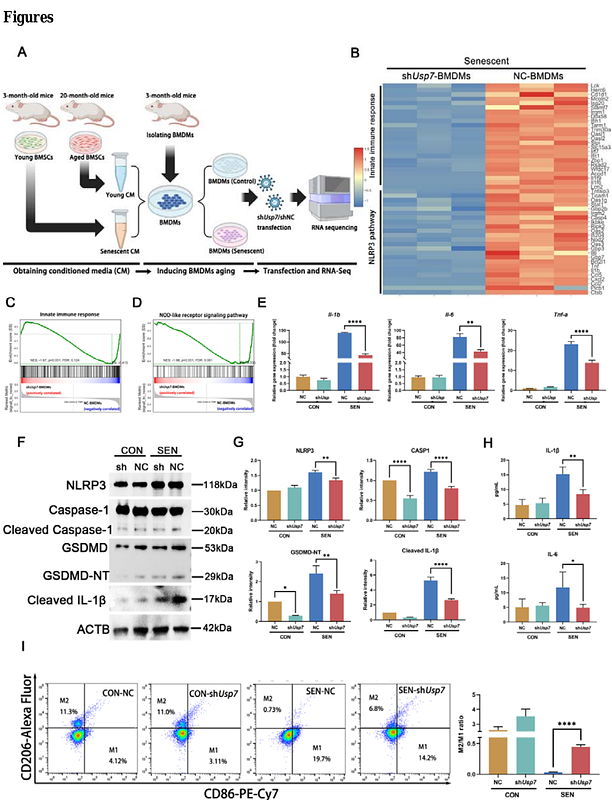USP7 Inhibition Promotes Mesenchymal Stem cell-Macrophage Crosstalk in Age-related Osteoporosis via Efferocytosis and Senolysis

USP7 Inhibition Promotes Mesenchymal Stem cell-Macrophage Crosstalk in Age-related Osteoporosis via Efferocytosis and Senolysis
Zhou, F.; Wang, Z.; Li, H.; Wang, D.; Wu, Z.; Bai, F.; Wang, Q.; Luo, W.; Zhang, G.; Xiong, Y.; Wu, Y.
AbstractThe interaction between bone mesenchymal stem cells (BMSCs) and macrophages in osteoporosis has gained increasing attention. Aged BMSCs exhibit a senescence-associated secretory phenotype (SASP), which contributes to the inflammatory microenvironment with macrophage inflammaging. USP7, as a key deubiquitinase regulating cellular senescence and inflammation, has been found to promote senolysis when inhibited. We found that USP7 inhibition induced senolysis and osteogenic differentiation in aged BMSCs. For senescent BMDMs, USP7 inhibition suppressed inflammaging and enhanced efferocytosis through EPSIN1/LRP1 pathway, enabling them to efficiently clear apoptotic senescent cells caused by USP7 inhibition. In the femurs and vertebrae of aged mice, it was discovered that USP7 inhibition could rescue bone loss, which may be associated with improved macrophage efferocytosis. This study highlights the potential of USP7 inhibition in promoting senolysis in aged BMSCs and enhancing efferocytosis capacity of senescent BMDMs, which exerts a synergistic therapeutic effect by inducing senescent cell apoptosis and immune clearance.